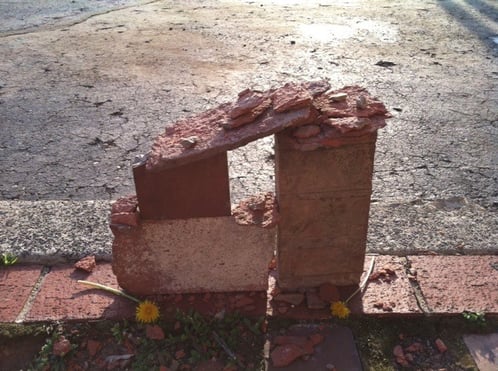As my graduation approaches, I have been honored with many accolades for my work both in and out of the classroom and I am very grateful for the recognition. It feels good to have your hard work recognized and I am no different than most people - I'm flattered and pleased.
But there was one honor I wanted –I mean really wanted –and I didn’t get it. When I got the rejection email yesterday morning, I was sitting in my mentor’s office preparing for a talk I was to give later that afternoon. Much to my embarrassment, my eyes welled up with tears as I told him I’d been turned down. After all the honors and awards I’d received all week, I was surprised by how much that rejection stung.
After a few minutes of trying to unpack my disappointment, he looked at me levelly and said, “You know, you’ve made great strides with your confidence over this past year, but you really need to work on accepting rejection well.”
And, oh boy, is he right!
I have gotten into the habit of reading people and how they receive me and my work as an assessment of me as a person. As a performer, rejection is the difference between making the bills and not making the bills. If people don’t like you, then they won’t hire you. In that sense Aristotle was right when he cautioned that professional musicianship was a type of slavery –slavery to the audience and slavery to the love for honor and accolades.
It’s hard to undo that desire to please the world with my work. The reality, however, is that I can’t please all the people all the time, and, if I am going to go on in my studies, I need to develop a thicker skin. I suspect that I'm not alone. Even among my non-performer friends, there are many who want to please people and take it personally when a rejection of an idea or work is leveled.
Disappointment is a part of life and rejection can teach us a great deal, on a practical level – about ourselves and about our work –and on a spiritual level, as well. On my walk this morning I began to take apart my disappointment and see what it could teach me and I came up with three questions to ask my self and three lessons I could take away from this
1. Assess the rejection – Is it a rejection of you or of your work or ideas?
In rejection, I’m in good company - When Jesus was crucified, when the apostles and martyrs were killed for their faith, it was a rejection, not only of an idea, but of the worth of their personhood. Stepping back, I can see that a small rejection like this isn’t the end of the world. There are much more important things to be upset about. In the grand scheme of rejections, this one is pretty small.
2. Things always happen for a reason - Is there something you don't know about?
In a word, yes! Whether or not I can see it right now, there is a reason for this rejection, and it may have absolutely nothing to do with me. The person whose work was chosen may or may not be better suited for the task, but in God’s plan, that person is the person who needed the recognition.
3. What have you lost?
In reality, I have lost nothing but a few hours of time. Some rejections are more severe than others, but often, the losses are of pride or a matter of hurt feelings –certainly in this case, that’s where I am. I have become so attached to being honored and looking to others to affirm myself that I have lost sight of the only person that counts – God. His honors don’t usually carry plaques or public recognition with them, so looking to the world to provide those things as affirmations of my worth merits me nothing.
In the end, it is humility that will help me grow in wisdom and grace. When I encounter rejection, I am coming up against God’s plan for my life and realizing, once again, I am not in charge.
“The Stone that the builders rejected has become the cornerstone.” – Psalm 118:22
Copyright 2015 - Katie O'Keefe
Photo copyright Katie O'Keefe 2015. All Rights Reserved.



.png?width=1806&height=731&name=CatholicMom_hcfm_logo1_pos_871c_2728c%20(002).png)
Comments